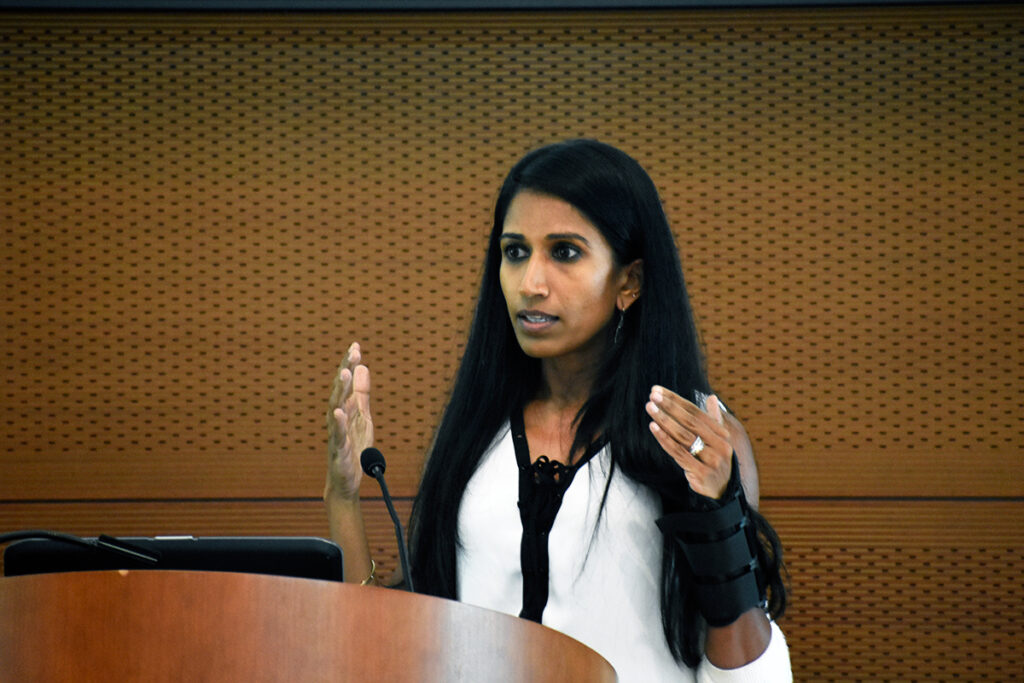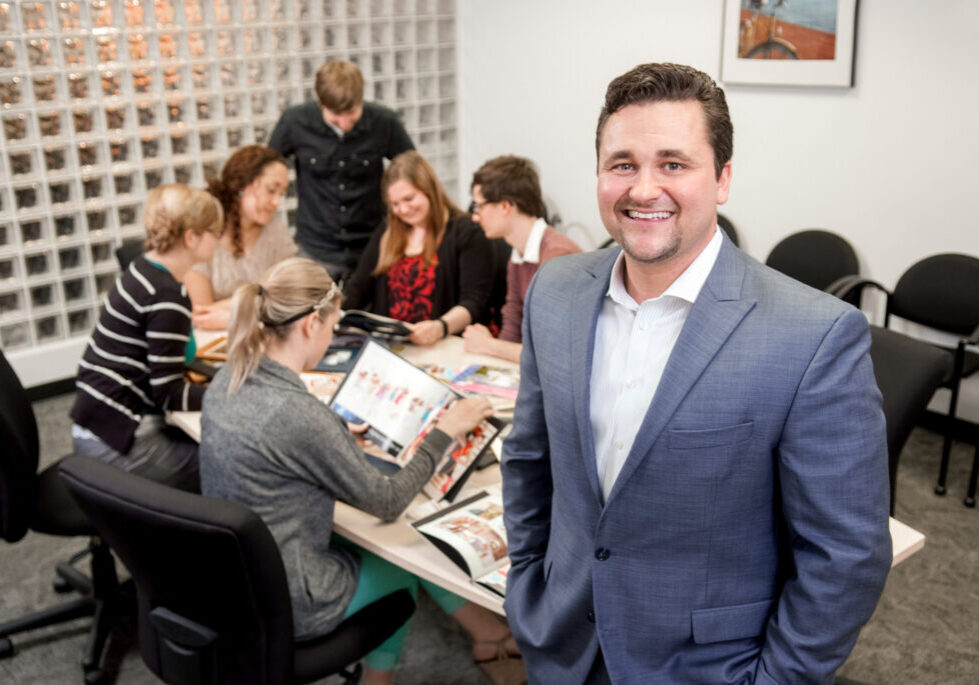“There were a lot of lessons learned about what not to do,” Raja told business leaders recently at the Baton Rouge Area Chamber’s monthly lunch.
Raja has bounced back from that first startup experience and is now CEO and a co-founder of the fast-growing education-technology company Nepris, a cloud-based software platform that helps bridge the gap between business and education. The platform lets teachers connect curriculum with the real world by virtually inviting industry professionals into the classroom to engage and inspire students on topics such as science, technology, engineering, the arts and mathematics.
Raja’s entrepreneurial experience has made her a strong advocate for the lean-startup method for building companies, a philosophy popularized by author Eric Ries that encourages founders to make better and faster business decisions. She outlined how Nepris leveraged the lean approach to evolve quickly and create a viable product that customers wanted to use.
Raja said her process of building a company now starts with direct communication with customers. She sees the traditional model — developing a lengthy business plan, raising capital, hiring a team, building a polished product, then launching it to adoring customers — as an outmoded and unrealistic approach.
“This is nice on paper, but it’s not the truth,” she said. “It’s backwards, because you don’t write a business plan without really talking to customers.”
Instead, she said, before founders start on a business plan or product development they should talk to as many potential customers as possible to better understand what the market actually needs. The goal, she said, is to reduce risk and take products to market faster.
“It’s not about elaborate planning; it’s about experimentation,” Raja said.
The idea of experimentation is built into the DNA of Nepris. Raja, who earned a master’s in computer science from LSU, launched the Austin, Texas-based company with her co-founder in 2013 and immediately sought out potential customers — well before they started coding their first product.
She said she first approached a teacher to see if the concept was something she would use in the classroom. When the response was encouraging, Raja set out to find a professional who was a good match for the teacher’s particular interest, eventually finding a General Motors employee who was willing to give students a virtual tour of one of the automaker’s assembly plants.
To facilitate the first virtual session, the company built a minimum viable product — a foundational concept of the lean-startup methodology — that allowed the GM professional to communicate with a classroom full of students.
“We knew that every single line of code that we built for that first session had to be thrown away,” Raja said. “The idea was not to build a perfect product but to build something so we could get it in the hands of customers. That is the most important thing in a lean startup.”
Six months after it had incorporated, Nepris had conducted a dozen of these virtual sessions with students and professionals, with each leading to incremental improvements to the product. For example, feedback from a teacher led to a texting feature to let high-school students pose questions to the professionals anonymously.
Raja suggests founders develop a feedback loop for their business with the following steps: Build a product, measure customer response, learn from that feedback and improve the product. “This has to be a continuous loop of learning,” she said.
This process of customer feedback and interaction has worked well for Nepris. The company has raised $2.6 million in funding, attracted teachers from every state, signed up 25,000 professionals and reached 160,000 students.
The company offers a free version of the platform for school districts and also has a premium option with more features. It provides white-label versions of the software for organizations like BRAC, which uses the platform for its virtual schoolhouse aimed at connecting industry experts in Baton Rouge with local classrooms.
BRAC President and CEO Adam Knapp said the chamber’s relationship with Nepris came out of strategic planning that called for an increased focus on STEM topics and more efforts to more closely align the education and business communities.
Raja said these same areas are on the minds of business leaders nationwide as they become more aware of the shrinking pipeline of students who are qualified for technology-related work. “Companies are really concerned about this trend because they’re not able to find the skilled workforce in their community,” she said.
Raja said research shows that students who drop out of school or abandon technology fields often do so because they don’t see the relevance of the curriculum to their lives, particularly children from economically distressed communities who may not have as many opportunities to see successful role models in the job market.
She said that Nepris seeks to combat that trend by leveraging the millions of professionals around the country who can offer students insights into what their jobs look like and expose them to career paths they may never have considered.
In one example, students in the rural community of Roscoe, Texas, who because of geography have limited exposure to different types of careers, were able to virtually connect with technology professionals. Today, through Nepris, the students have interfaced with Frito-Lay engineers to see how robotics are used in product manufacturing, conducted a question-and-answer session with an engineer at Samsung and connected with other professionals they would be unlikely to encounter in their hometown.
“This our goal: to level the playing field,” Raja said.



